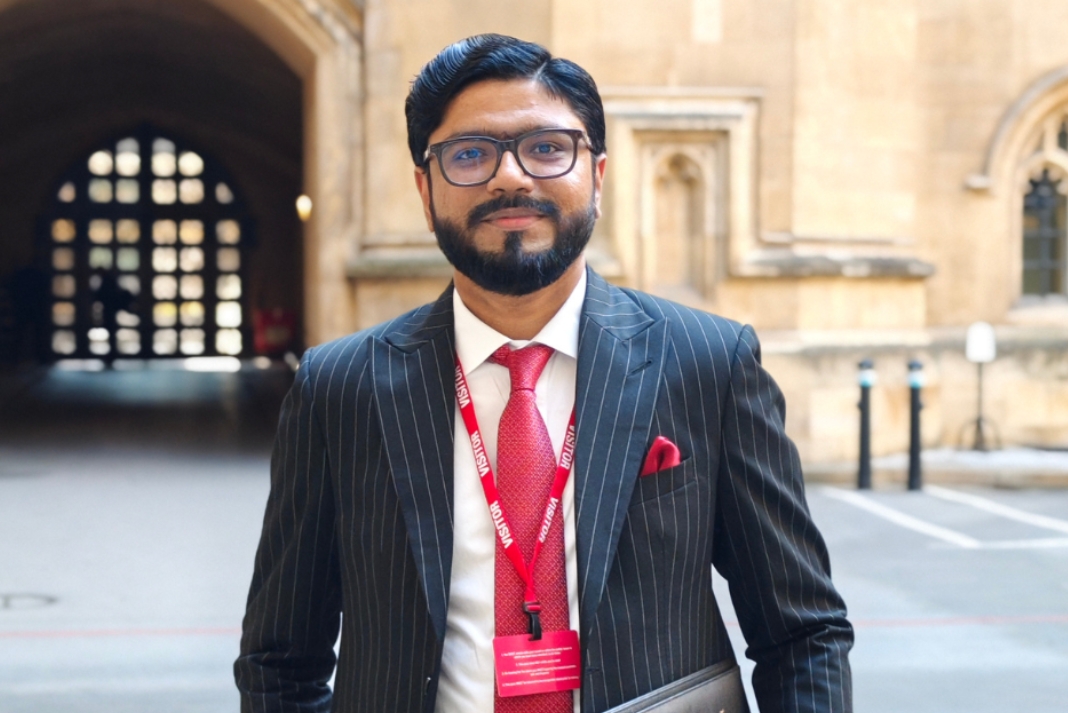Make It a People’s Pact: Harsh Girish Patel Puts SMEs at the Center of India–UK Trade

An important turning point in the developing economic relationship between India and the UK was Harsh Girish Patel’s recent speech to the UK Parliament. In his speech at the India–UK SME Leaders Meeting, he emphasized the FTA’s transformative potential and positioned small and medium-sized businesses (SMEs) as the cornerstone of this historic agreement, which was signed in May 2025. As the founder and global chief executive officer of Water & Shark, a multinational company that specializes in legal and tax advice, Patel used his dual credentials as a chartered accountant and advocate to present a convincing case for bilateral trade.
An Idea for a “People’s Agreement”
Patel’s main point was crystal clear: the India-UK free trade agreement should be a “People’s Agreement” that empowers small businesses and entrepreneurs, not just diplomatic rhetoric. He cited the startling fact that 60 million micro, small, and medium-sized businesses (MSMEs) in India make up almost 30% of the country’s GDP, and that 98% of UK companies exporting to India are SMEs. These numbers demonstrate the significant contribution SMEs make to economic expansion in both nations.
Patel called on business executives and legislators to give these companies’ needs top priority in his speech. He suggested doable steps like opening up £38 billion in Indian public procurement opportunities for UK companies and permitting direct listings of Indian startups on the London Stock Exchange’s Alternative Investment Market (AIM). He contended that these measures would lower tariffs, simplify regulations, and establish an environment that is conducive to entrepreneurship.
Taking Care of Talent and Wealth Migration
Beyond trade, Patel addressed the migration of talent and wealth, which is a major problem for both countries. He cited India’s complicated regulations and the UK’s 40% inheritance tax as the main reasons why capital and human resources are being drawn overseas. His remedy? Make use of the FTA to promote international cooperation in succession planning, legacy management, and trust law. Patel thinks both nations can maintain their most talented people and wealthiest resources by coordinating their policies, which will increase their ability to compete internationally.
The Economic Promise of the FTA
The FTA between India and the UK is no small accomplishment. According to projections, it will increase bilateral trade by £25.5 billion a year by 2040, solidifying the partnership as a pillar of the UK’s post-Brexit economic strategy and providing India with access to international markets.
According to Patel’s vision, SMEs are central to this expansion because of their contributions to innovation, job creation, and regional development. By redefining the FTA as a forum for inclusivity, his proposal for a “Founder & Trade Agreement” guarantees that small businesses, not just corporate behemoths, benefit from it.
A Blueprint for the Future
Patel’s speech is more significant because of its timing. The India-UK free trade agreement presents a unique chance to rethink economic cooperation as the world struggles with post-Brexit trade dynamics and changing international alliances. Patel’s speech served as a guide for action in addition to being a critique of policy. He outlined a plan that could influence the FTA’s implementation for years to come by emphasizing SMEs, wealth retention, and useful cooperation.
To sum up, Harsh Patel’s vision strikes a balance between pragmatism and forward-thinkingness. A change toward a more inclusive approach to international trade—one that gives priority to the small businesses that are the foundation of both economies—is indicated by his speech to the UK Parliament. Patel’s observations will probably direct the FTA’s development as it gains traction, guaranteeing that it fulfills its promise of prosperity for all.
The post Make It a People’s Pact: Harsh Girish Patel Puts SMEs at the Center of India–UK Trade appeared first on Digpu News.
News